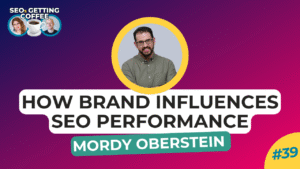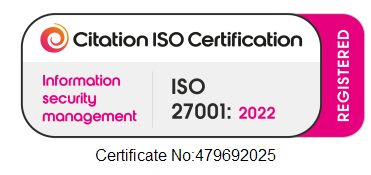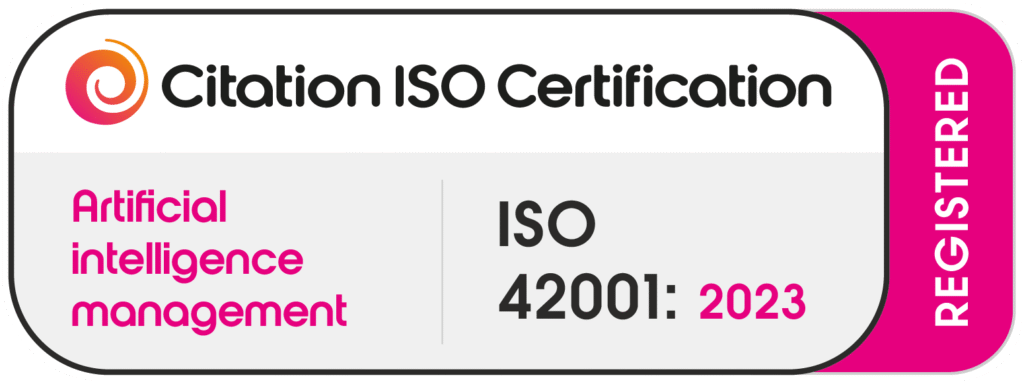Back when I was an in-house Digital Marketing Manager, part of my job was to hire external agencies or SEO consultants. Not an easy task! Particularly at the start of my career when I didn’t know what to ask an SEO consultant to ensure they fit my requirements. Mistakes were definitely made!
Here’s what to ask your SEO consultant to avoid the same pitfalls I stumbled into.
But first, let’s be clear here, there is always a chance you will end up hiring someone who does a bad job. But you’ll decrease the chances of that happening by just making sure you ask your consultant a few pointed questions before you hire them.
Start with the usual questions, for example:
- What’s their experience in my category?
- Can you share success stories and references?
But make sure you go beyond those with a few pointed questions that will give you the details you’ll need to make the right choice.
You should ask your SEO consultant to:
- Explain their SEO process in detail
- Share their opinion on the 3 main SEO areas you should focus on
- Be clear on how they will measure SEO success
- Explain their keyword research process
- Describe their creation strategy
- Tell you how they keep up with Google algorithm changes
Let’s dive into each question and see why they are important.
Can you explain your SEO process in detail?

SEO is complex, and every consultant has their own process. A good SEO consultant should be able to explain their process and how they plan to implement it to match your company’s needs. This doesn’t need to be super detailed.
However, an overview of the main processes they have will give you an insight into their work and help you determine if their approach matches your expectations.
This is also a great opportunity for you to get some more information on the SEO tech stack they will use. If there was one tool I would recommend you ask about specifically it’s Google Search Console. SEOs who don’t use this in their work are not very good SEOs at all!
What are, in your opinion, the 3 main areas we should focus our efforts on?
This is a great question to weed out SEO consultants who will only focus on questionable impact strategies. If they start talking about meta tags or core website vitals as a priority, that’s a red flag. While these make some difference it likely won’t help you move the needle. Also, be mindful to spot how the areas they mention are framed. For example, if content is one of the key areas (which it should be!), you want to be able to see they understand that it’s about producing quality content and not churning out X amount a month or stuffing the content with keywords.
A good SEO will demonstrate solid technical SEO knowledge and you should find yourself discussing this side of things or at least seeing some evidence that your SEO has experience on the technical side. Ask them some questions about crawling or sitemaps to see how the respond and get a gauge of their confidence or knowledge in this area.
How will you measure success?
Measuring success is crucial in any SEO project and it’s important to determine what metrics the SEO consultant will use to measure the campaign’s success. You want them to focus on soft metrics such as rankings and traffic BUT you will also want them to talk to you about conversion tracking. Traffic is great, but only if it’s the right traffic. On the flip side, you also don’t want them to sell you pork pies here. You’ll want to know that they understand how complex conversion tracking is and how there is no such thing as perfect attribution (particularly today with the rise of Dark social).

Can you explain your keyword research process?
Keywords are vital in any SEO campaign. They are the search terms people use to find your website. An excellent SEO consultant should be able to show you their keyword research process. They should be able to explain how they research keywords and which tools they use. You should also pay attention to any clues that will tell you how they prioritise keywords. Only talking about volume and keyword difficulty is a red flag. Keyword research should take intent as the basis, and good SEO consultants understand that keyword research is more complex than downloading a list from SemRush and deleting 0-volume keywords. Additionally, the other key concept to look out for is topics (sometimes called intent clusters). How Google ranks websites has changed drastically. Google is no longer just a keyword detection algorithm; the machine learning involved has developed beyond this to look at the context, relationships between keywords and relevance. A really interesting area that often gets mixed into this is entity SEO. But the bottom line is that with this question, you need to make sure that your SEO consultant is following the most up-to-date understanding of how Google ranks pages and how this changes the keyword research process.
How do you keep up with Google algorithm changes?
While no SEO consultant will be able to tell you the details of algorithm changes, they should definitely know when one has happened and have a general idea of what it entails. At least the official confirmed updates! A mark of a great consultant is the ability to stay up-to-date as much as possible with algorithm changes. And, with other best practices in general, so they can at least attempt to avoid any negative impacts of an update in the first place!
Final thoughts
When hiring an SEO consultant or agency, you can never know if someone will ultimately do a great job until they start. But you can make sure you minimise the risks of hiring someone who’s pants simply by asking the right questions. I learned that the hard way in my early career. It was definitely not a wasted experience though! After my initial bad consultant, I made sure I knew what to ask next time. It’s how my SEO career started – a bit of interest in the topic and the necessity to ensure I’m not wasting my budget. Hopefully, these questions help some of you weed out the bad from the good. Happy hiring!











